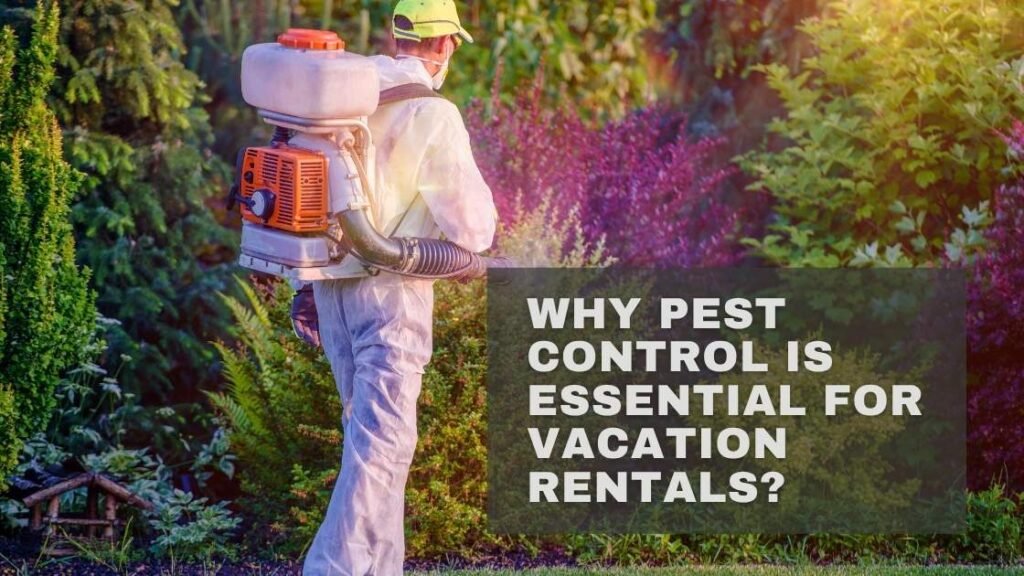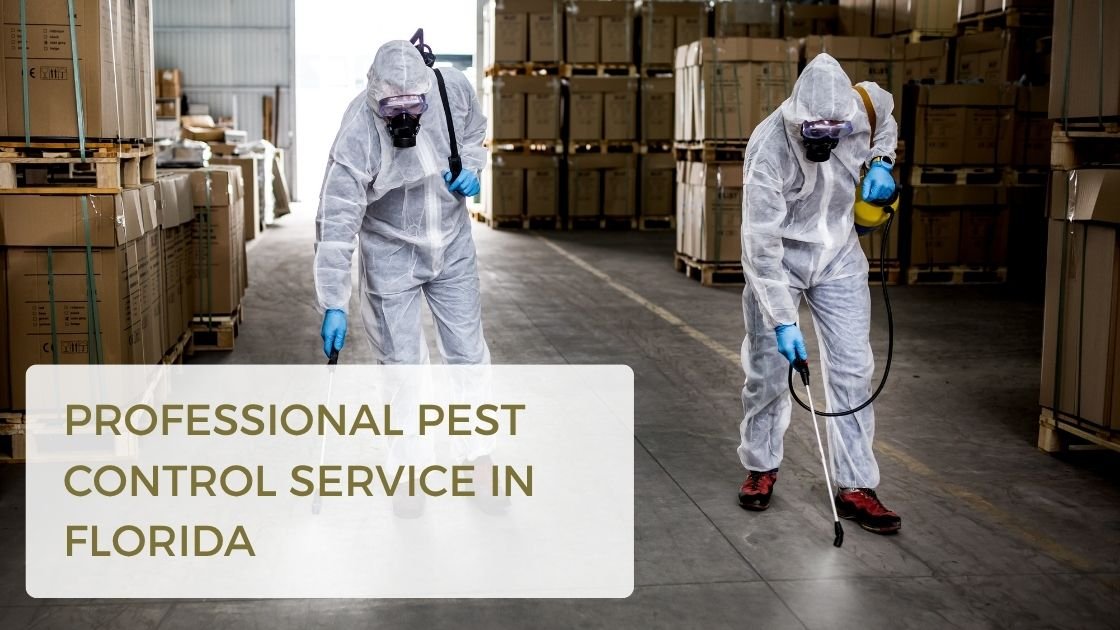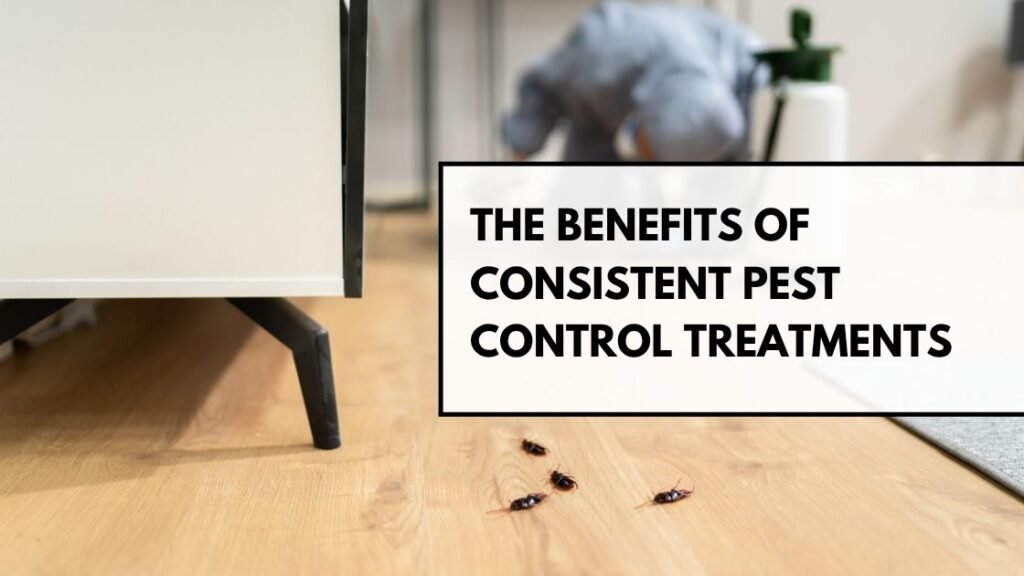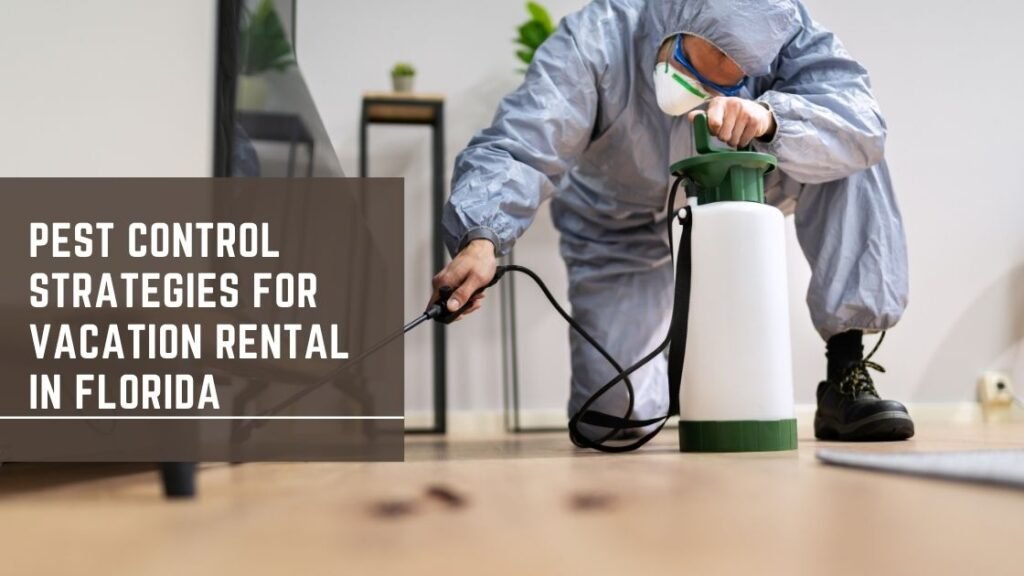Florida’s warm, humid climate may be perfect for vacationers, but it’s equally inviting to pests like mosquitoes, termites, cockroaches, and ants. For vacation rental owners and property managers, pest control isn’t just about comfort—it’s a vital part of maintaining property value, ensuring guest safety, and protecting your hard-earned reputation.
Unwanted critters can quickly ruin a guest’s stay, leading to negative reviews and potential legal trouble. From the beaches of Miami to the theme parks of Orlando, maintaining a pest-free environment is a top priority if you want your rental property to thrive year-round.
In this blog, we’ll explore practical, effective pest control strategies specifically tailored for vacation rentals in Florida. Whether you manage a coastal condo or a cozy inland cottage, these tips will help you keep your rental pest-free and five-star ready.
Understanding Florida’s Common Vacation Rental Pests
Florida’s subtropical climate creates the perfect breeding ground for a wide variety of pests—many of which can become a nuisance in vacation rental properties. Knowing which pests to watch out for is the first step in creating an effective pest control plan.
1.Mosquitoes
Warm temperatures and frequent rain make Florida a hotspot for mosquitoes. Not only are they irritating to guests, but they also carry diseases like West Nile Virus and dengue fever. They thrive near standing water, so even small puddles around your property can attract them.
2. Cockroaches (Palmetto Bugs)
The large, flying variety of cockroach known as the Palmetto bug is common in Florida. They’re often found in kitchens, bathrooms, and dark, moist places—and their presence can immediately alarm guests.
3. Termites
Florida is one of the most termite-prone states in the U.S. These silent destroyers can cause serious structural damage if not treated early. Wood-framed vacation homes, especially older ones, are at high risk.
4. Ants (Especially Fire and Carpenter Ants)
Fire ants build mounds in sandy soil and can deliver painful stings, while carpenter ants can tunnel through wood and weaken your structure. Both types are common in Florida yards and can find their way inside rental homes.
5. Rodents (Rats and Mice)
Rodents are attracted to food waste, cluttered areas, and warm indoor environments. Once inside, they can damage property, spread disease, and cause guests to feel unsafe.
6. No-See-Ums (Biting Midges)
These tiny flying insects are hard to spot but deliver an itchy bite that can be a major nuisance. They’re especially common near coastal areas and marshy landscapes.
Understanding the types of pests your Florida rental might attract will help you take targeted action—whether you’re handling prevention yourself or partnering with a professional pest control service.
Why Pest Control Is Essential for Vacation Rentals?

1.Health and Safety for Guests
Pests like mosquitoes, rodents, and cockroaches can carry harmful bacteria and viruses that pose serious health risks. A single pest-related incident can jeopardize the well-being of your guests and open you up to liability.
2. Protecting Property from Damage
Termites and carpenter ants can silently destroy wooden structures, while rodents may chew through wires, insulation, and plumbing. The longer pests go undetected, the more expensive the damage becomes. Preventative pest control helps avoid costly repairs.
3. Maintaining Guest Satisfaction and Positive Reviews
First impressions matter. If guests see a roach in the kitchen or hear a mouse in the wall, their vacation experience will be overshadowed—no matter how beautiful your rental is. Pest sightings often lead to negative online reviews, cancellations, and reduced bookings.
4. Legal and Regulatory Compliance
In Florida, property owners are responsible for keeping rental properties in habitable condition, which includes pest control. Failing to meet these standards can lead to violations, fines, or lawsuits—especially if a guest becomes ill or injured due to an infestation.
5) Enhancing Your Rental’s Reputation
A pest-free vacation rental builds trust with repeat guests and travel platforms. Highlighting your commitment to cleanliness and regular pest maintenance can be a strong selling point in your listings.
Preventive Pest Control Measures
The best pest problems are the ones that never happen. Prevention is key to protecting your vacation rental from unwanted guests of the insect or rodent kind. These practical, proactive steps can help keep your Florida property pest-free year-round.
1. Maintain Your Landscaping
Trim trees and shrubs to prevent pests from using branches as bridges into your home. Remove standing water (like birdbaths, clogged gutters, or old planters) to reduce mosquito breeding grounds. Keep grass cut short and eliminate yard debris, where pests love to hide.
2. Seal Entry Points
Inspect and seal all cracks, crevices, and gaps around doors, windows, vents, and utility openings. Also, install door sweeps and weather stripping to block tiny entrances. Use fine mesh screens on windows and vents to keep flying insects out.
3. Secure Trash and Food Sources
Provide sealed trash bins inside and outside the property. Ask cleaners to remove food waste promptly between guest stays. Store pantry items in airtight containers if your rental offers a stocked kitchen.
4. Schedule Regular Cleaning
Set a consistent cleaning schedule between guest stays that includes wiping down kitchen surfaces, cleaning behind appliances, and vacuuming corners. Encourage cleaners to report any pest signs immediately—droppings, damage, or nests.
5. Store Linens and Supplies Properly
Use plastic bins with lids instead of cardboard boxes for storing linens and supplies.
Keep storage areas dry and well-ventilated to discourage nesting pests and mold. Taking these steps regularly not only deters pests but also shows guests that your rental is well-maintained and thoughtfully managed.
Professional Pest Control Services in Florida

1. Why Hire a Licensed Pest Control Company
Expert knowledge of local pests: Florida professionals understand the seasonal patterns and habits of pests specific to the region.
Safe and effective treatments: They use regulated, environmentally safe products that are more effective than over-the-counter options.
Customized service plans: Services can be tailored to your rental’s specific location, structure, and landscaping.
2. Recommended Service Frequency
Monthly or bi-monthly visits are ideal in Florida’s humid climate, especially for properties near the coast or in wooded areas. Schedule extra visits during peak seasons (spring/summer) when pest activity is highest.
3. Eco-Friendly and Guest-Safe Options
Look for providers offering green pest control or integrated pest management (IPM) approaches. These methods use minimal chemicals, making them safer for families, children, and pets—important for guest trust and satisfaction.
4. Pest Control as Part of Property Maintenance
Include pest control in your regular maintenance schedule alongside HVAC, plumbing, and landscaping. Request detailed service reports after each visit to monitor activity and improvements. Keep documentation for guest reassurance and insurance purposes.
Investing in professional pest control gives you peace of mind—and provides your guests with the comfort and cleanliness they expect. Next, we’ll look at some natural and DIY pest control methods that can supplement professional services.
Natural and DIY Pest Control Tips
While professional services are crucial, you can also adopt natural and do-it-yourself strategies to enhance your rental’s pest protection. These budget-friendly, eco-conscious solutions are especially useful between pest control visits or for guests who prefer chemical-free environments.
1. Use Essential Oils as Natural Repellents
Certain essential oils are known to repel pests naturally:
a. Peppermint oil for ants, spiders, and rodents
b. Citronella and eucalyptus oils for mosquitoes
c. Lavender and tea tree oils for flies and moth
d. Mix with water and spray around doors, windows, and baseboards.
2. Diatomaceous Earth
This natural powder is harmless to humans and pets but deadly to many insects like ants, roaches, and fleas.
a. Sprinkle it lightly along baseboards, under sinks, and behind appliances.
b. Reapply after cleaning or if it gets wet.
3. Boric Acid for Roaches and Ants
A small amount of boric acid can be placed in inaccessible areas (behind cabinets or appliances) to control roaches and ants. Be cautious with placement if children or pets are present.
4. Citrus Peels for a Fresh, Pest-Free Home
Citrus is a natural deterrent for ants, spiders, and even fleas. Leave orange or lemon peels in kitchen corners, windowsills, or around garbage bins.
5. Set Traps or Bait Stations
Use sealed ant baits or snap traps for rodents in low-traffic areas. Check and dispose of traps regularly to avoid unpleasant surprises for guests.
6. Create a DIY Cleaning Routine for Pest Prevention
Wipe surfaces with vinegar or lemon water to repel ants and neutralize food scents. Encourage cleaners to vacuum and mop thoroughly, especially in corners and under furniture.
These natural strategies are easy to implement and can make a big difference in keeping pests at bay—especially when combined with professional pest control and preventive maintenance.
Seasonal Pest Control Considerations
Florida’s climate isn’t just hot and humid—it’s also home to distinct pest activity patterns that vary with the seasons. Being aware of these seasonal changes helps you plan proactive measures to keep your vacation rental pest-free year-round.
1. Spring and Summer: High Pest Activity
Mosquitoes and no-see-ums become most active as temperatures rise and rainfall increases. Termites swarm during late spring—especially the dreaded Formosan subterranean termites. Ants, cockroaches, and flies are drawn indoors to escape the heat and seek food and water.
What to do:
Schedule a pre-summer inspection with your pest control provider. Apply outdoor mosquito control treatments around standing water and plant beds. Seal gaps and reinforce your screening system.
2. Fall: Rodent Season Begins
As temperatures drop slightly, rats and mice seek warmth and shelter—often inside homes. Cockroaches and spiders may also move indoors in search of food.
What to do:
Inspect the property for entry points—especially around the roofline, attic vents, and garage. Set rodent traps or bait stations in low-risk areas.
3. Winter: Don’t Let Your Guard Down
While many pests slow down, indoor infestations can still occur, especially if the rental remains occupied. Florida’s mild winters mean pests like ants and roaches remain active year-round.
What to do:
Continue routine pest monitoring even during off-peak months. Use this time for deep cleaning and maintenance to prevent buildup of clutter or food crumbs.
4. After Storms or Hurricanes
Heavy rains and flooding can displace pests, driving them indoors. Water damage can create the perfect conditions for termites, mold, and pest infestations.
What to do:
Inspect your property after storms for signs of new pest activity. Dry out any damp areas quickly and repair water damage immediately.
Educating Guests Without Alarm
Clear, friendly communication encourages guests to help in the fight against pests—without making them worry that your rental has an infestation. Strike the right tone by focusing on prevention, comfort, and respect for the local environment.
1. Include Pest-Prevention Tips in the Welcome Guide
Quick reminders:
You can provide some quick note like the followings:
“Please keep doors and windows closed when the A/C is on to keep the cool air in and the bugs out.”
“Store leftover food in the fridge or sealed containers—Florida ants love a snack!”
Positive framing:
Emphasize comfort (“so you can enjoy your stay bite-free”) instead of threats.
2. Friendly Signage at High-Risk Spots
Place small, tasteful placards near trash bins or patio doors:
“Help us stay mosquito-free—dump any standing water from the cooler after use.”
However, avoid bold red warning signs; aim for a calm, hospitality-focused design.
3. Digital Check-In Messages
Send a short SMS or app notification soon after arrival:
“Welcome! A quick note—Florida critters are curious, so please keep screens closed and rinse dishes before bedtime. Let us know if you need anything!”
4. Provide the “Just-in-Case” Kit
A clearly labeled cabinet or basket with:
a. Child-safe pest spray or essential-oil repellent
b. Extra trash bags with ties
c. A flashlight for spotting and reporting pests at night
Mention its location in your house manual so guests feel prepared, not alarmed.
5. Fast, Empathetic Response Protocol
If a guest does report a pest sighting:
a. Respond within minutes, thank them, and apologize for the inconvenience.
b. Offer an immediate solution (housekeeper visit, extra repellent, or pest control service).
c. Follow up to ensure they’re satisfied and note the incident in your pest log.
When guests feel informed and supported, they’re more likely to cooperate in preventive measures—and far less likely to leave negative reviews if an occasional Florida critter appears.
Choosing Pest-Resistant Materials and Furnishings while setting your Rental property
One of the smartest ways to defend your Florida vacation rental against pests is to make the space less attractive—or accessible—to them from the start. Strategic choices in materials, furniture, and decor can go a long way in preventing infestations.
1. Avoid Pest-Attracting Materials
Untreated wood can attract termites and carpenter ants. Opt for pressure-treated or composite wood for outdoor decks and furniture. Wicker and rattan can harbor insects, especially in humid environments. Choose metal or sealed plastic alternatives when possible.
Steer clear of thick fabric drapes and rugs in high-humidity areas—they trap moisture and provide hiding places for pests.
2. Use Easy-to-Clean Surfaces
Install tile or vinyl flooring instead of carpet, which can harbor crumbs and insects. Use leather or faux-leather upholstery that’s easy to wipe clean and less attractive to pests than fabric. Choose sealed countertops and cabinetry to prevent entry points and easy nesting.
3. Choose Pest-Resistant Bedding and Storage
Opt for mattress and pillow protectors that guard against bedbugs and dust mites. Store extra linens in sealed, plastic bins rather than cardboard boxes. Avoid placing storage under beds unless drawers are tightly sealed and cleaned regularly.
4. Pest-Resistant Landscaping Choices
Use mulch alternatives like stone or rubber, which don’t retain moisture or attract termites. Plant pest-repelling herbs and flowers like lavender, mint, citronella grass, or marigolds around entryways. Keep plants trimmed and at least 1–2 feet away from the exterior walls to reduce insect bridging.
Designing with pests in mind doesn’t mean sacrificing style. These smart, subtle upgrades make your property easier to maintain, more durable, and more comfortable for guests—all while keeping pests at bay.
Partnering with Property Managers or Local Vendors
Maintaining a pest-free vacation rental in Florida is easier when you collaborate with trusted local professionals and property managers. These partnerships ensure consistent, expert care tailored to your property’s unique needs.
1) Coordinate Pest Control Schedules
Work with your property manager to schedule regular pest control treatments and inspections, especially during high-risk seasons.
Ensure pest control visits don’t interfere with guest stays—plan treatments during turnovers or low-occupancy periods.
2) Build Relationships with Reliable Pest Control Companies
Choose licensed, reputable pest control vendors experienced with Florida’s specific pest challenges. Ask for references and reviews before committing, and discuss eco-friendly options if that aligns with your property’s values. Keep a list of emergency contacts for pest issues that arise during guest stays.
3) Keep Detailed Records
Maintain a pest control log including treatment dates, service details, and any guest complaints. Share these records with property managers and cleaning staff to ensure everyone stays informed.
4) Training for Cleaning and Maintenance Staff
Educate your team on signs of pest activity and encourage immediate reporting. Train them on proper waste disposal and storage techniques that reduce pest attraction.
5) Local Vendor Support for Quick Response
Have local handyman and landscaping contacts ready to fix structural issues (like sealing cracks, repairing screens) promptly. Quick repairs prevent pests from gaining access and keep your property in guest-ready condition.
Strong local partnerships not only strengthen your pest control strategy but also enhance overall property management efficiency, leading to happier guests and smoother operations.
The Benefits of Consistent Pest Control Treatments

1. Long-Term Pest Prevention
Scheduled treatments interrupt pest life cycles and keep populations from growing. This proactive approach reduces the chance of infestations becoming severe and harder to manage.
2. Protecting Property Value
Termites, rodents, and other pests can cause structural damage that’s costly to repair. Consistent pest control safeguards your investment by addressing problems before they escalate.
3. Enhanced Guest Experience and Satisfaction
Guests expect a clean, comfortable stay—free from creepy crawlies. Regular pest control ensures your rental maintains a positive reputation, leading to better reviews and more bookings.
4. Cost Savings Over Time
Preventing infestations is far less expensive than dealing with an emergency treatment or property repairs. Consistent pest control helps avoid these unexpected, costly surprises.
5. Compliance with Health and Safety Regulations
Many local regulations require landlords and rental owners to maintain pest-free properties. Regular treatments help you stay compliant, avoiding fines and legal issues.
6. Peace of Mind for Owners and Guests
Knowing that your rental is regularly monitored and treated means fewer worries about unexpected pest problems during guest stays.
Dealing with Pests When They Have Already Infested Your Rental Property
Even with the best preventive measures, pests can sometimes find their way into your vacation rental. Acting quickly and effectively is crucial to minimize damage, protect your guests, and restore your property’s reputation.
1. Identify the Extent of the Infestation
Conduct a thorough inspection to determine the type of pest and how widespread the infestation is.
Look for common signs: droppings, nests, damage to wood or wiring, bite marks, or pest sightings.
2. Contact Professional Pest Control Immediately
Infestations often require professional treatment for safe and effective eradication. Choose a licensed pest control company experienced with your specific pest issue. Discuss treatment options and timelines, ensuring the property is safe for guests during and after treatment.
3. Notify and Accommodate Guests Promptly
If guests are currently staying at the property, inform them transparently and apologize for the inconvenience. Offer solutions such as alternate accommodations or compensation if necessary. Keep communication open until the issue is fully resolved.
4. Deep Clean and Repair the Property
After pest removal, conduct a deep clean to eliminate droppings, eggs, and residues that could attract new pests. Repair any damage caused by pests, such as sealing holes, fixing screens, or replacing damaged wood.
5. Review and Strengthen Prevention Measures
Analyze how the infestation occurred and update your pest prevention plan accordingly. Increase inspection frequency and maintenance routines. Educate cleaning staff and property managers on early warning signs.
6. Document the Incident
Keep detailed records of the infestation, treatments performed, and guest communications. This documentation can protect you in case of disputes and helps track patterns for future prevention.
Conclusion
Effective pest control is a cornerstone of managing a successful vacation rental in Florida. The state’s warm, humid climate makes properties especially vulnerable to a variety of pests—from mosquitoes and termites to rodents and ants. By understanding the common pests, implementing preventive measures, and partnering with professional pest control services, you can protect your property and provide guests with a comfortable, worry-free stay.
Seasonal awareness, natural pest deterrents, and guest education further enhance your strategy, while thoughtful choices in materials and strong local partnerships create a long-lasting defense against infestations. With a proactive approach, you not only safeguard your investment but also build a reputation for cleanliness and care that attracts repeat visitors and positive reviews.
Start today by assessing your property’s vulnerabilities and putting these pest control strategies into action. Your guests—and your bottom line—will thank you!




